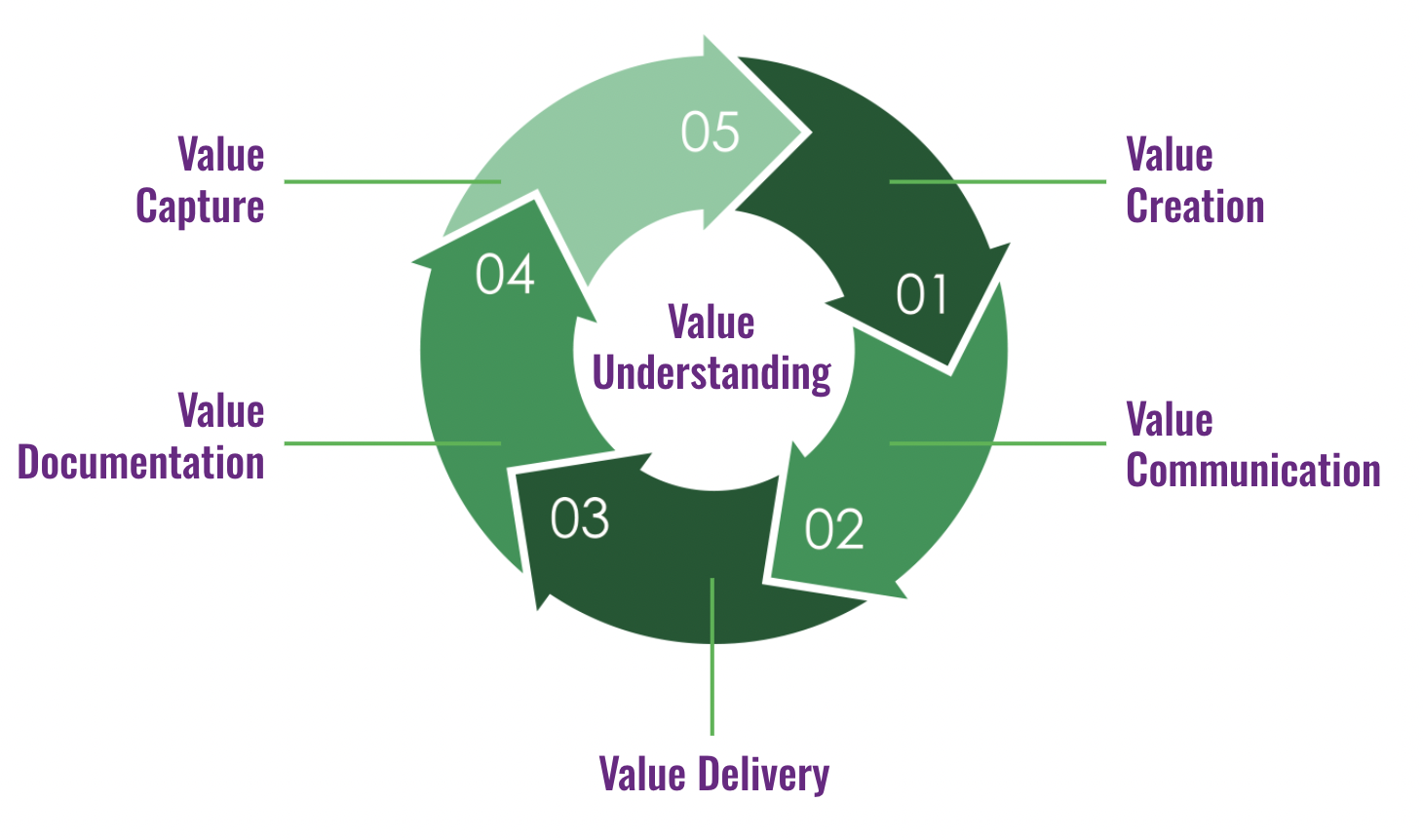Questions to ask before hiring a pricing consultant
Liam Hannaford is the Marketing Manager at Ibbaka. Find him on LinkedIn
Pricing holds significant power among the four Ps (product, price, place, promotion), yet it remains one of the least understood aspects in many companies. Often, pricing decisions are made based on outdated models or arbitrary numbers, resulting in missed opportunities for profit growth.
CEOs and their boards are recognizing the need for change and are turning to pricing consulting companies for assistance. However, simply acknowledging the need for improvement isn't enough; organizations must take actionable steps to revamp their pricing strategies and differentiate themselves in the market. This often requires collaboration across departments with guidance from pricing experts to navigate their pricing journey toward pricing success.
Pricing stakeholders include
Product (value creation)
Marketing (value communication)
Sales (value communication and documentation)
Professional Services (value delivery)
Customer Success (value communication, delivery, documentation)
Finance (value capture and analysis)
The need for pricing guidance has intensified along with the heavy investments being made in AI, especially generative AI.
Few SaaS companies see enough different pricing models to navigate the challenges of pricing AI based solutions.
Who can help? Finding solutions in choosing the right pricing consultants
If your SaaS solution is priced too high, you may encounter difficulties in attracting new customers and suffer unnecessary churn. Conversely, pricing it too low could jeopardize the sustainability of your business over the long term.
Navigating SaaS pricing can pose challenges, particularly for growth stage SaaS. It can be difficult to balance three key objectives
Maximizing Revenue,
Expanding the Customer Base
Minimizing Churn
This is why some companies opt to engage a SaaS pricing expert.
Further reading for you - Pricing and Planning: 3 Approaches to Discounting
Is pricing really the problem?
Many people reach out to us with pricing problems. When we peel these back, we find that pricing is often the symptom of some other problem. Pricing is easy for people to complain about.
‘It is too expensive.’
‘I can get it cheaper.’
‘That is not how I want to pay.’
‘I am not getting any value.’
Pricing is where challenges with value creation, communication, delivery, and documentation come to the surface. The first step in any pricing engagement is to understand the root causes of the pricing challenge and then to test that challenge for alignment with the organization’s larger goals.
In the beginning stages of any pricing project, it's crucial to dig deep into why pricing is challenging and see if it matches up with what the organization wants to achieve. By actively figuring out and tackling these main issues, businesses can set the stage for pricing strategies that really work and lead to success.
Exploring Patterns in Pricing Consulting
Various types of projects emerge from this analysis of root causes. Below are the common types of engagements we frequently participate in.
Explore and research the economic, emotional, and social values that resonate with buyers and users.
Identify market structures and target customer segments.
Analyze and map value drivers, metrics, and pricing strategies.
Build a value model that quantifies who is getting value and how much value is being delivered
Design packaging and pricing that aligns with the who and how much of value
These efforts primarily aim to:
Quantify the value being delivered to customers.
Design pricing models for existing and new offerings.
Develop pricing processes for innovative products.
Implement pricing interventions within existing value chains.
Subsequently, additional crucial tasks may include:
Introducing new pricing models.
Migrating existing customers to new pricing.
Supporting marketing and sales teams.
Crafting pricing playbooks to align strategic objectives with tactical execution.
The Ibbaka approach is based on understanding business models and how value is created—not just our customers, but their customers too.
We focus on research and design and work with advanced technology to uncover hidden market patterns, gather and analyze data, and create tools like Ibbaka Valio - our configurable and flexible pricing and value management engine. We bring together business analysts, software engineers, data scientists, and designers to work collaboratively.
Different Approaches to Pricing
Determining willingness to pay (WTP): Understand what customers are willing to pay. This is the traditional way of setting prices, assuming that customers already have a set willingness to pay. If your pricing provider uses methods like the Gabor-Granger method or conjoint analysis, they likely follow this approach.
Optimize pricing: Finding the right price. Customers want to know the best price for them. Nowadays, this often involves dynamic pricing, where prices are adjusted using complex algorithms based on customer and market data.
Systems implementation: There are sophisticated pricing systems available that require extensive setup. They work best when they can access data from other systems. This is specialized work that only a few companies excel at, often with close ties to pricing system vendors.
Another type of pricing consulting has the potential to completely transform companies that are ready to embrace it. This involves focusing on pricing governance, building capabilities, and changing company culture. These areas require unique skills compared to other pricing tasks.
Picking the perfect pricing consultant. What to look for.
Consider Roger Martin's cascading choices model to identify areas where you may require assistance.
Which of these 5 cascading choices will yield the most significant impact on your business?
First, understand the problem you are trying to solve. Ask yourself the following questions…
Was the consultant effective in clarifying the potential causes of my pricing problems?
Did the consultant inquire about my customers and their business practices?
Did the consultant delve into our pricing objectives and their alignment with broader business goals?
Then, visualize what the solution may entail.
Are you delivering value to your target customers?
Explore value-based market segmentation and customer targeting.
Are you introducing a groundbreaking innovation or creating a new category?
Develop a set of strategies and a systematic approach to establish pricing in a dynamic, evolving environment.
Does your product stand out and offer significant value?
Collaborate with your consultant to devise a pricing model that links value measurements to pricing strategies.
Are you operating in an established market with well-defined pricing structures?
Partner with your consultant to identify pricing strategies and execution methods.
Does customer willingness to pay vary based on market conditions and buyer characteristics?
Consider dynamic pricing solutions (and likely utilize specialized software to execute this).
Do you require pricing software, CPQ (configure price quote) software, or need to configure your CRM, marketing automation, or customer success software?
Engage a consultant to assist in system specification and selection, followed by another consultant for implementation.
Do you seek guidance on pricing strategies?
Collaborate with your consultant to embed pricing capabilities within your organization and provide necessary training.
Are you dealing with internal conflicts regarding pricing within your complex organization?
Seek support from an organizational design and change management consultant with expertise in pricing practices and processes.
Pricing consulting isn't a one-size-fits-all solution.
A reputable consultant will honestly assess whether they possess the necessary skills, tools, and connections to address your specific challenge.
Conversely, an inadequate consultant may claim they can handle any task. However, even large firms have limitations; attempting to cover all bases often compromises effectiveness. Larger firms are known to treat their customers like a one-and-done case…with an approach that is equated to shaking your hand, saying good luck, and then goodbye. No follow-up on your customer journey.
Scale does not equate to capability. Just as differentiation is crucial for product firms, it is equally vital for consulting firms. If a consultant struggles to define their own unique strengths, how can they assist you in identifying yours?
Ibbaka works with:
B2B SaaS and Industrial Internet of Things companies
With $5 million to $100 million in ARR
Who includes sales-led growth in their go-to-market motion
When the CEO and leadership are engaged in pricing strategy











